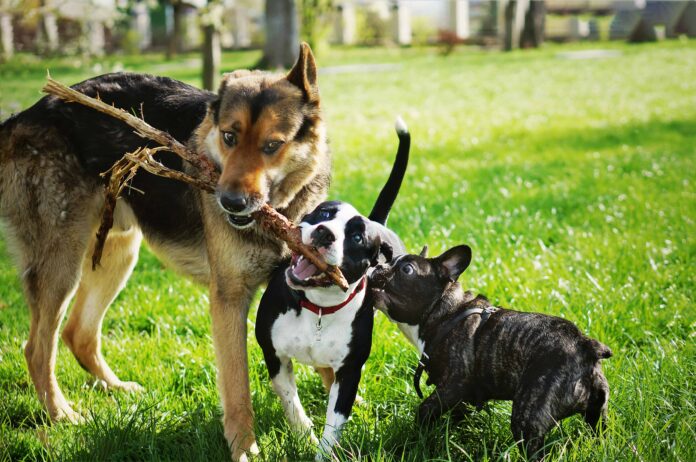There are many factors to consider when choosing a dog breed. Some people want a dog that can keep up with their active lifestyle, while others may prefer a low-energy dog that sheds less. Finding the right dog can be a difficult decision. Families with small children should consider selecting a breed that does not nip or bite. Also, people with allergies should seek out a low-shedding breed.
Table of Contents
Activity Level
Choosing the right dog requires careful thought but can also be fun. There are many options: purebred or mutt, puppy or adult, rescue or breeder. Regardless of your route, there are some essential criteria that most dog lovers try to meet when searching for dogs for sale. One of the most important things to consider is activity level. Some dogs need very little physical activity, while others require jogging or playing long games of fetch. The energy level of the dog also has a significant impact on its training ability. For example, a brilliant breed will probably be more accessible to train than a more traditional, easily distracted breed. The activity level of the dog can also be affected by its age. Puppies, for example, are often more energetic and must be given great attention to housetraining, socialization, and obedience training.
On the other hand, some adolescent and adult dogs can have calmer personalities. It is also important to remember that many behavior problems, such as excessive barking and digging, can be exacerbated by a lack of exercise, mental stimulation, and additional training. Having enough time to dedicate to your pet’s needs will help ensure the happiness of both of you. This is why it is best to take your time when purchasing a new dog for sale.
Size
First, you need to decide what size dog will suit you. This may seem obvious, but it is essential to consider the size of your lifestyle and home. For example, if you live in an apartment, it is best to avoid large breeds, as they require a lot of space and exercise. Conversely, if you have children, you will want to look into small breeds that are good with kids, as larger dogs can be somewhat dangerous around small children. Similarly, consider the age of your family members, as some breeds are better suited for older adults than others. If you have young toddlers, it is a good idea to avoid dogs that are known to bite when teething, as they will likely try to grab the kids’ toys and might hurt them. It would be best if you also decided whether you want to get a puppy or an adult dog. Puppies require much time for housetraining, socialization, and obedience training, while adults have already been trained and will be more settled into your home.
Personality
When selecting a dog, its personality is as important as its size and activity level. The type of dog you choose to join your family may significantly affect the quality of life you will enjoy together. A dog’s personality is a combination of its genetic traits and its environment. A dog’s temperament, which reflects how it thinks and acts, can be changed through training, socialization, exercise, and mental stimulation. A dog’s personality is also influenced by its age. Puppies have high energy levels and require a lot of attention. Adult dogs are usually calmer and more relaxed. It’s best to research dog breeds before choosing one to ensure you will be happy with your decision.
Health
Getting a new dog is exciting but something to avoid jumping into lightly. You’ll need to do your research so that you find the right breed for your lifestyle. Ask yourself questions about your family’s preferences and how active you are, and use the AKC’s breed selector tool to narrow down your options. The purpose of a dog’s breeding is also essential to consider. For instance, a herding breed may be suitable for people who live on ranches, but that won’t work well in an apartment with small children. Herding dogs can be aggressive toward children and may nip at their heels, even if they’re not being trained to herd. On the other hand, smaller breeds bred to be lapdogs tend to be very affectionate with kids. Ultimately, the best place to get a dog is from an animal shelter or rescue group. These places often have purebreds and mixed breeds waiting for a forever home, and many have websites listing available pets by breed. Many of these organizations will match you with a pet that matches your preferences, and you can save a life simultaneously.
Temperament
There’s more to choosing a dog than simply looking at its physical traits and deciding if it’s cute. Temperament also plays a role. A dog’s temperament is its general outlook on life and how it responds to certain things. For example, a dog with a choleric temperament will react differently to stress and frustration than a dog with a phlegmatic disposition. This can affect the dog’s behavior, how it interacts with family members and other pets, and how it deals with new situations. A dog’s temperament is affected by its breed, although each dog has its personality. A dog’s temperament can also be influenced by environment and training. For example, some dogs are naturally more energetic and may need to run around more than others. These dogs are better suited for active families than breeds with lower activity levels. The best way to determine a dog’s temperament is to visit its owners or trainers. This will help you determine whether or not it’s a good fit for your lifestyle. You can also ask your local vet or dog trainer for recommendations.








